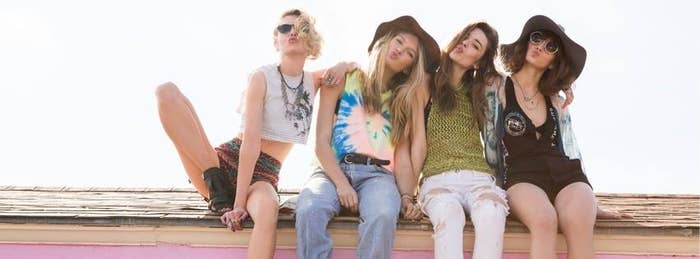
Urban Outfitters has become too much of a high school brand.
The company, which also owns Anthropologie and Free People, posted a dismal fourth quarter at its namesake line on Monday, with sales plunging 9% thanks to a combination of miserable weather and fashion misses. Anthro and Free People, meanwhile, saw jumps and have a promising spring season ahead, according to the Philadelphia-based retailer.
Management said it's restructuring the Urban brand and bringing in better, higher-quality merchandise in a bid to win back its 18- to 28-year-old customers, which the chain has drifted away from in recent years.
"Over the last four, five years, the Urban brand has moved somewhat south in terms of age group penetration — this is a lot of anecdotal information as well as some statistical information that we received from our web shoppers," Chief Executive Officer Dick Hayne said on a conference call Monday. "I don't think this is a good place for us to be. We have always said that we want to be college and post-college in terms of the customer base that we try to serve, and that is an 18- to 28-year-old customer. And to the degree we get down into the 14- and 15-year-old group, that is a group that wants a very different kind of product and a very different price structure. So, we do want to move back to the 18 to 28."
The exec added that he's "very convinced from years of experience that that customer wants better product and wants higher quality, and so that's the direction we are going to go, and I think everybody here is on board with that concept."
Urban brought in $1.37 billion in sales for the year, compared to $1.26 billion at Anthropologie and $416 million at Free People. The brand is seeking a chief merchandising officer as it works to improve its "fashion correctness." Indeed, Urban has raised eyebrows for some of its product choices in the past year, including a denim and tutu combination that Goldman Sachs analysts noted as perhaps too aggressive in a December note.
The retailer said while extreme weather was a huge problem in the fourth quarter, its fashion misses were an even bigger issue. Hayne rejected the idea that teen unemployment and demographic shifts contributed to Urban's weak performance, even as other brands rely on such reasoning to explain away a tough year.
"This market is highly competitive, but I believe the theories which correlate demographic shifts, poor employment numbers, online tipping points, or other similar factors to the difficult sales in the young adult market are off point," he said. "Sales correlate directly with fashion hits and misses and I believe the Urban brand has had fewer hits than normal. It's that simple."
